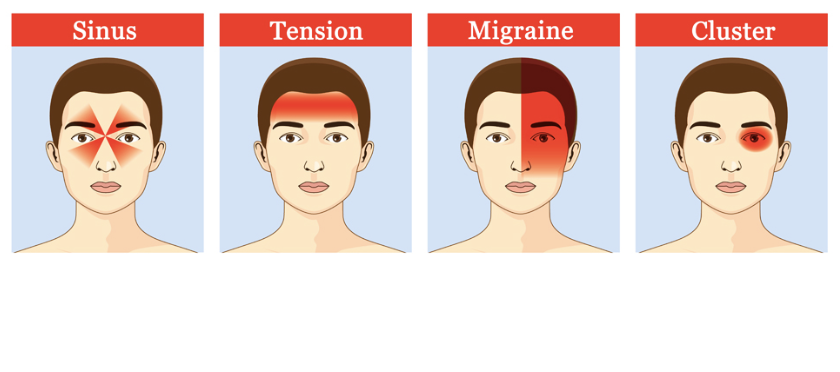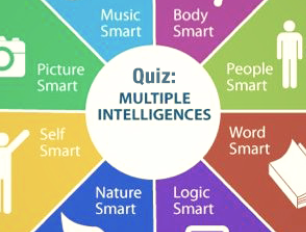Which Of The 4 Introvert Types Are You?

image via – shutterstock.com
According to scientists, there are four types of introverts. Which type most closely aligns with your personality type? Are you terrified to go out in public, and even thinking about the sound of someone knocking on your door causes you to break out in a cold sweat?
Or are you totally comfortable in social situations, and everyone you know would say you are extroverted, even though you know deep down inside that you are really an introvert? You may not mind being with other people, you might even genuinely enjoy it, but you need your alone time and feel drained when you are around too many people for too long, at the expense of spending time alone?
The four types of introverts are as follows:
The social introvert, who prefers to be alone or in small groups, but not because she is nervous in a larger group. She just prefers it that way.
Next is the anxious introvert, who is similar to the social introvert in that he prefers small groups of familiar people or solitude, but the anxious type steers clear of large groups of strangers out of anxiety, and is often still anxious even when alone.
The contemplative type is introverted because they like to get lost in their own fantasy world, and it is a creative or imaginative introversion that does not result from fear of social situations.
The last type, restrained introversion, could also be referred to as reserved. They like to think before they speak, and often times take a while to get moving on things, including getting up in the morning and getting into their day.
The idea that there are four types of introvert, rather than one blanket category, has come about due to the incongruence between the status quo scientific definition, and how introverts define themselves. Scientists started to notice the inconsistency, and have come up with these four categories to more accurately describe peoples’ actual experience in life.
Which type of introvert are you? Let us know!
Please Share With Your Family and Friends
The Type Of Headache You Get Can Reveal A Lot About The Health Of Your Body. THIS Is What They Mean!

image via – shutterstock.com
All of us get headaches from time to time, but many suffer from more chronic debilitating headaches. There are 4 main types of headaches: TENSION (which occur above the eyes and radiate below them); TENSION (which occur primarily above the eyes in the forehead area); MIGRAINES (which tend to be unilateral and radiate from the top of the face to the bottom, down the midline); and CLUSTER which usually occur over one eye.
SINUS headaches result from sinus infections and can be quite debilitating as well. Misdiagnosis of about 12 million Americans, who present with debilitating headache symptoms each year occurs because other symptoms concur with the headache, thus making a correct diagnosis more tricky.
The fact is, that a headache could be indicative of a more serious, even life-threatening illness, rather than a simple consequence stress and/or fatigue. So the question becomes, how do you know the difference between a simple stress headache and one that may be indicative of a more serious problem, e.g. BLEEDING IN THE BRAIN, AN ANEURYISM, A BRAIN TUMOR or a STROKE.
For instance, an acute headache after having sex or exercising may indicate the possibility of a tumor or aneurysm; a sudden or unbearable pain, known as a “thunderclap headache” that gets worse after 60 seconds, could indicate bleeding in the brain. In the video that you are about to watch below, a doctor discusses “Your Body’s Red Light Warning Signals” with headaches of varying types, intensities, and those that present with other neurological deficits.
For instance, any headache that has another marked symptom, such as: weakness, numbness and/or vision changes, could result from a migraine or something more serious. Watch this important video, so that you won’t overlook symptoms that should be immediately checked by a physician. It could be the difference between life and death.
Please SHARE This With Your Family and Friends
Which Intelligence Is Your Most Dominant?

image via – playbuzz.com
Intelligence has always been a controversial subject. Historically, we have had a rather myopic view of the subject, and our supposed measurements of intelligence were very limited in the type of intelligence they reference. We have since learned that intelligence is harder to pigeon hole than we previously thought. According to Howard Gardner of Harvard University, there are seven types of intelligence. Each person may have a balanced mixture of the various types, or they may be very strong or weak in one or more aspects.
Visual-spatial intelligence has to do with how well a person is able to think in terms of the physical environment. People who are strong in this type of intelligence do well with graphs, models and other spacial, physical learning tools.
People who have strong musical intelligence work best with rhythm and sound. They are very aware of the sound that constantly surrounds them and may learn best by putting things to a rhythm, turning information into lyrics, or having music on in the background.
Intrapersonal intelligence refers to how well a person understands themselves, including their own mind and emotions. They tend to be loners, but they have wisdom and insight that results from a strong inner search into their own psyche.
Strong interpersonal intelligence, on the other hand, helps a person interact with their fellow humans because it allows one to understand the social cues of others. They are good at learning through interaction.
Bodily-kinesthetic intelligence is described as an aptitude for bodily movement, which would be beneficial for a dancer or surgeon. They are very aware of their bodies and learn well by touching and feeling the subject matter.
Linguistic intelligence has to do with the ability to use language effectively. They often think in words, rather than pictures, and are often auditory learners that do well when material is offered in written form.
Finally, someone with high logical-mathematical intelligence is able to calculate and reason to a higher degree than the rest. They do well when things are explained logically and with supportive numerical data. Seeing patterns and thinking conceptually are strong points.
What type of intelligence is strongest for you? Let us know!
Please Share With Family and Friends




